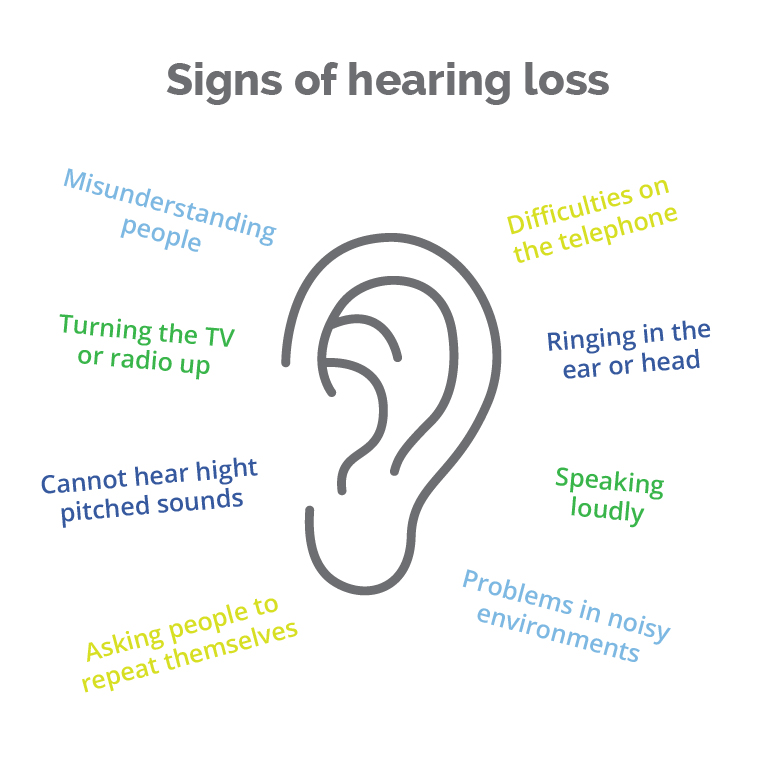Do you find that people around you mumble or speak low? Do you find it difficult to follow a conversation in larger gatherings or when there is background noise?
Do you often miss conversations on the phone? Do you need to turn up the volume on the radio or TV?
Do you often tell family and friends to repeat themselves? Do you need to look directly at people to understand what they are saying?
Have you noticed that everyday sounds, like birds, footsteps, your car blinker have disappeared?
Hearing loss is sometimes sudden, but more often it happens gradually and you may not notice it at first. If your answer is ‘yes’ on the above questions, you may want to do a hearing loss test.
What are general signs of hearing loss?
It can be hard to tell if you’re losing your hearing. Other people may notice it before you do. Notice if you recognise any of the early signs of hearing loss:
- difficulty hearing other people clearly and misunderstanding what they say, especially in noisy places.
- asking people to repeat themselves.
- listening to music or watching TV with the volume higher than other people need.
- difficulty hearing on the phone.
- finding it hard to keep up with a conversation.
- feeling tired or stressed from having to concentrate while listening.
These problems are often caused by hearing loss that can happen as you get older. This is permanent, but treatment by a professional can help.
It’s not always easy to tell if you’ve lost hearing in 1 ear, as you may still be able to hear with your other ear.
Signs of a hearing problem in 1 ear include:
- your hearing is worse when sound comes from 1 side
- all sounds seem generally quieter than usual
- finding it hard to tell where sound is coming from
- difficulty ignoring background noise or telling different sounds apart
- finding speech unclear
- difficulty hearing in noisy places or over long distances
Hearing loss can have a significant effect on your quality of life. Older adults with hearing loss may report feelings of depression. Because hearing loss can make conversation difficult, some people experience feelings of isolation. Hearing loss is also associated with cognitive impairment and decline.
The mechanism of interaction between hearing loss, cognitive impairment, depression and isolation is being actively studied. Initial research suggests that treating hearing loss can have a positive effect on cognitive performance, especially memory.
When to Seek Professional Help?
If you recognise any of the above-mentioned symptoms, or notice any difficulty in everyday listening situations, be sure to see a hearing care professional for a hearing evaluation. Be aware that age-related hearing loss occurs gradually, so you may not notice it at first. A hearing care professional can check your hearing and determine a treatment that is right for you.
